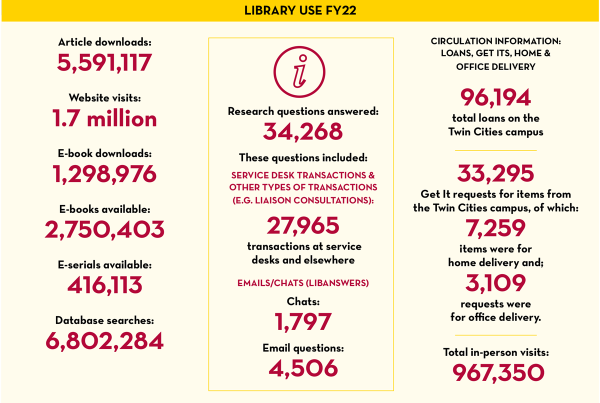“Aren’t open access journals ‘predatory’?” is a concern we hear a lot in the Libraries. For years, open access publications have been labeled as “predatory” by various researchers, in editorials, and even by librarians. For many faculty, this term has confused the matter of open access and impeded our progress toward a more open publishing system. There are some questionable publishing practices from journals around the world, but “open access” does not mean “predatory.” In fact, open access publications often follow the same rigorous peer review and editing processes as many subscription journals. In this post, we explore the history of “predatory” as a problematic term that has been unjustly and detrimentally associated with open access journals.
Inherent racism in the origins of the ‘predatory’ label
In 2010, a (white, male) librarian published on his website a list of journals and publishers he labeled “predatory”, without providing the criteria he used for generating the list. The list garnered much attention and is still circulated today, often referred to by authors concerned about the legitimacy of OA publishing. It was composed of fully OA journals, specifically journals that charge article processing charges (APCs), and had a strong bias against Majority World countries.[1]
The author of the list went one step farther in 2015 in publishing a short piece in the Emerald City Journal, “Is SciELO a Publication Favela?”[2] SciELO is a publishing platform initially created by funding agencies in Brazil and now hosts publications from 16 countries, primarily in Latin America. It is a credible vehicle for sharing research results that is well-regarded and supported by many scholars. The author contrasts SciELO (likening it to a slum) with “commercial publisher platforms [that] are nice neighborhoods for scholarly publications.” The cavalier racism and arrogance inherent in this comparison is astounding. SciELO is in no way “predatory” simply because it is non-commercial and primarily non-English-language-based.
What is ‘predatory’?
We acknowledge that there have been some “bad actors” in the OA publishing realm—OMICS Publishing Group is a high profile example. However, one could argue that the system of scholarly publishing is itself predatory, implicating all commercial publishers. Subscription-based publishers take content that they receive for free from researchers, solicit other researchers to peer review for free, and then sell the published articles back to the researchers or their institutions. Most of the work in this model is funded by educational institutions, which receive varying but often significant public funding. Add to this hybrid journal APCs: publishers charge an APC for an individual article to be made open while also charging a subscription fee to institutions. These APCs are fees that are collected on top of what the journal already charges in subscription fees. The largest commercial publishers, such as Elsevier, Wiley, and Taylor & Francis charge prices that result in profit margins of up to 40%.
Both commercial and non-commercial, closed and open access journals can publish low-quality articles. The Retraction Watch database contains thousands of articles from commercial publishers that have been retracted. Famous examples include the article published in the generally highly respected journal The Lancet, that linked autism to vaccines, which increased skepticism about the safety of the MMR (measles, mumps, and rubella) vaccine.[3] In more recent examples, in 2021, Juul Labs (the makers of e-cigarettes) paid $51,000 to sponsor a special issue of the American Journal of Health Behavior[4] in support of Juul products as an aid for smokers to quit and Toxicology Letters published a study linking 5G mobile networking to health effects in humans.[5]
What can you do?
There are bad actors in scholarly publishing—it’s a multi-billion dollar industry and some publishers have found ways to exploit the system. But the use of the label “predatory” is problematic. It’s not just OA journals that exhibit questionable behaviors and we don’t have to let the bad actors keep us from publishing OA.
Thousands of articles on the topic of “predatory publishers” have been published, which can give the impression that the open access publishing landscape is full of potential boogiemen. But you can avoid these by putting thought into where you choose to publish, regardless of its OA status or cost model. Some good resources are:
Think. Check. Submit. (https://thinkchecksubmit.org/)
The Directory of Open Access Journals (doaj.org)
The Committee on Publication Ethics Discussion Document on Predatory Publishing (https://publicationethics.org/files/cope_dd_a4_pred_publishing_nov19_screenaw.pdf)
We also recommend reading about the term “predatory” from a different perspective. Reggie Raju of the University of Capetown wrote an excellent blog post as part of his term as Research Fellow of the Library Publishing Coalition: Predatory publishing from a global south perspective.[6]
Sources
[1] Houghton, F. (2017). Ethics in academic publishing: A timely reminder. Journal of the Medical Library Association, 105(3), 282-284. 10.5195/jmla.2017.122
[2] Beall, J. (2015) Is SciELO a Publication Favela? Emerald City Journal. https://www.emeraldcityjournal.com/2015/07/is-scielo-a-publication-favela/
[3] Motta M, Stecula D (2021) Quantifying the effect of Wakefield et al. (1998) on skepticism about MMR vaccine safety in the U.S. PLoS ONE 16(8): e0256395. https://doi.org/10.1371/journal.pone.0256395
[4] Kaplan, Sheila. “Juul is Fighting to Keep its E-Cigarettes on the U.S. Market.” New York Times Company, last modified Jul 05.
[5] Ronald N. Kostoff, Paul Heroux, Michael Aschner, Aristides Tsatsakis, Adverse health effects of 5G mobile networking technology under real-life conditions, Toxicology Letters, Volume 323,2020, Pages 35-40, https://doi.org/10.1016/j.toxlet.2020.01.020.
[6] Reggie Raju.(2018). Predatory publishing from a global south perspective. Library Publishing Coalition Fellows Journal. https://librarypublishing.org/predatory-publishing-global-south-perspective/ Last accessed February 25, 2022.




